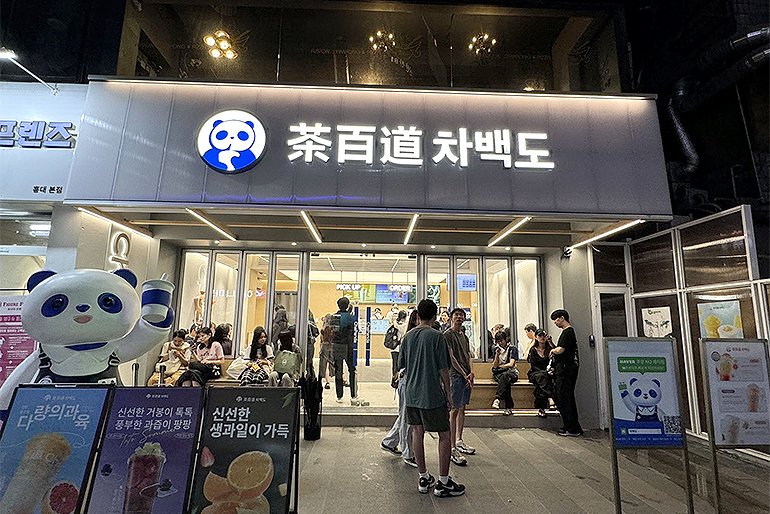 Chinese New-Style Tea Brand ChaPanda to Open 30 Stores in South Korea in 2024
Chinese New-Style Tea Brand ChaPanda to Open 30 Stores in South Korea in 2024(Yicai) July 8 -- ChaPanda, a Chinese new-style tea chain, will open 30 shops in South Korea this year after opening its first overseas outlet in Seoul's Gangnam district in January.
ChaPanda chose South Korea as its first overseas stop because it boasts eating habits similar to those of China, is economically developed, and has a huge beverage market, Wang Huan, who manages the firm's local business, told Yicai yesterday. There are only 2,000 milk tea stores there, meaning it is still a blue ocean market, he added.
Competition in the Chinese tea market has significantly increased over recent years and new-style tea brands have begun expanding overseas. ChaPanda has four stores in South Korea, two in Thailand, and two in Australia.
"Simply bringing domestic products to overseas markets is the main reason why Chinese brands have not been able to enter mainstream global markets and channels," Simon Zhang, global chief executive and China chairman of Ries Strategy Positioning Consulting, previously said. "The issue is particularly prominent in the food and beverage industry."
Local consumers account for over 80 percent of ChaPanda's customers in South Korea, Wang noted. The company's research and development team has redeveloped all products due to the differences between the tastes and flavor preferences of South Korean and Chinese clients, he added.
ChaPanda went public in Hong Kong on April 23, raising nearly HKD2.6 billion (USD332.8 million). It plans to use 5 percent of the proceeds to boost the capacity of its supply chains in overseas markets, according to its prospectus.
ChaPanda's South Korean menus include more than 20 items, most of which are similar to those in China. However, there are also three to five unique and exclusive products, mainly created with local fruits according to different seasons.
One of the biggest challenges faced by Chinese new-style tea brands' global strategies is the formation of supply chains, Wang noted. "From a physical perspective, the most challenging aspect is cross-border supply chains, but in the medium to long term, it is cultural differences."
Some of the raw materials Chengdu-based ChaPanda uses in South Korea such as those for packaging are imported from its Chinese headquarters, Yicai learned. The rest, including fruits and milk, are from local suppliers.
"Some raw materials, which are from ChaPanda's headquarters, do boast price-related advantages in South Korea, which is thanks to China's strong manufacturing capability and cost-relevant advantages," Wang pointed out.
ChaPanda's average transaction value is CNY32 (USD4.40) in South Korea, slightly more than that in China, Wang said. "The cost structure in South Korea, which includes labor, raw materials, logistics, and tariffs, is completely different from that in China, but we have offered relatively friendly pricing in the South Korean market."
Editor: Martin Kadiev